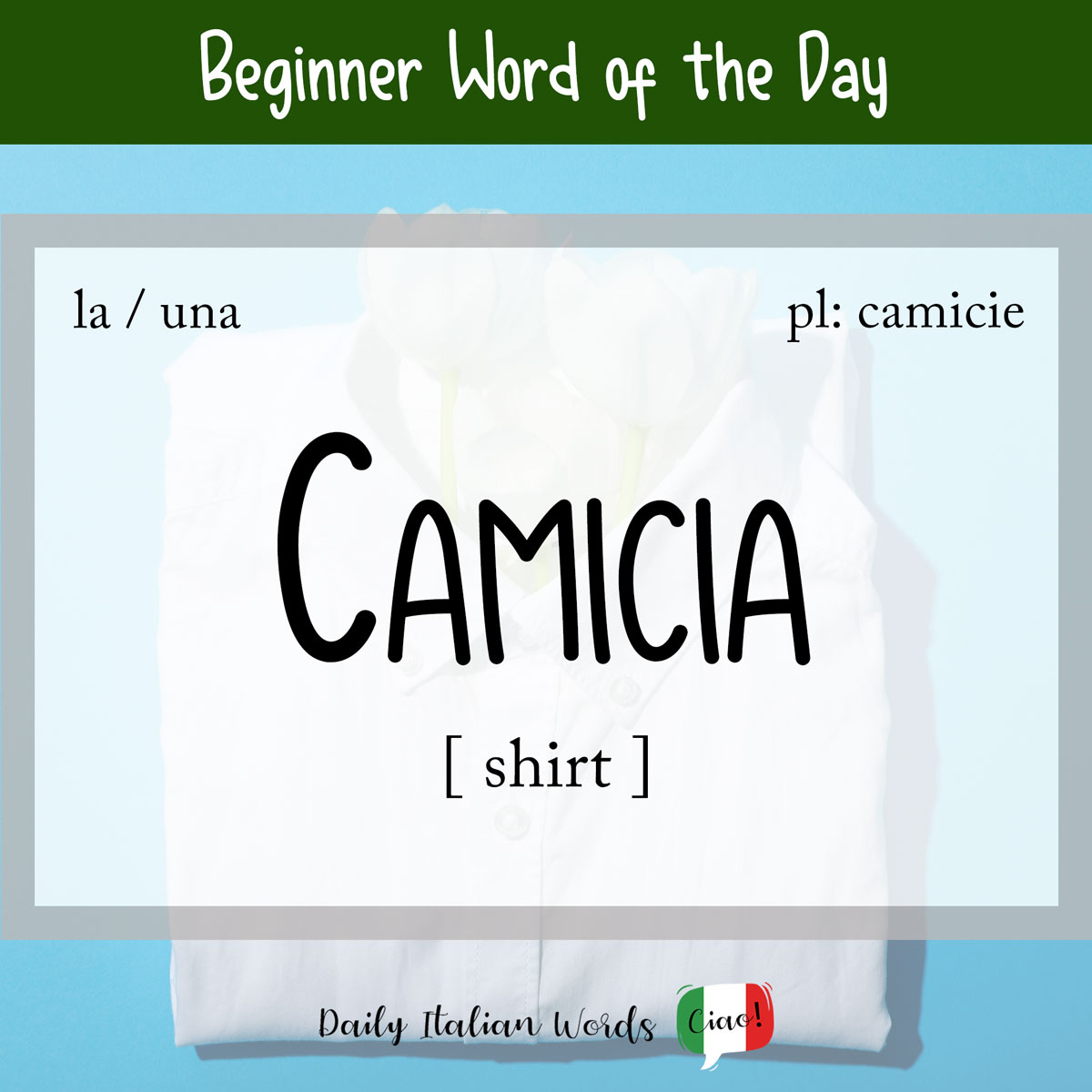A camicia (shirt or button down shirt) is an item of clothing made of different fabrics like cotton, linen, silk, or flannel, that can have long or short sleeves.

Camicia comes from the Latin term camisia, whose origins are uncertain.
Unlike a maglietta (T-shirt) or a maglia (a shirt made with heavier cloth), a camicia is your typical shirt with a collar and buttons on the chest and cuffs. It can be worn in both formal and informal situations. A blouse is known as a camicetta, which is the diminutive of camicia.
Non so se indossare una maglietta o una camicia oggi.
I’m not sure whether to wear a T-shirt or a (button down) shirt today.
If you wish to specify that you are referring to a dress shirt, you can modify it with the adjective elegante (elegant). A camicia da notte, on the other hand, is a nightgown for sleeping. Some other kinds of camicie include the camicia di forza (straitjacket).
Camicia, associated with a particular colour, is also used to describe members of a political movement, organisation or military group. For example:
- camicia nera = Blackshirt (a member of Italy’s Voluntary Militia for National Security during Mussolini’s fascist era)
- camicie rosse = Redshirts (volunteer soldiers who followed Giuseppe Garibaldi in his campaign to unite Italy)
- camicie verdi = Lega Nord members (Italy’s right-wing party)

Because it is a feminine noun, it takes the following definite and indefinite articles:
- la camicia = the shirt
- le camicie = the shirts
- una camicia = a shirt
- delle camicie = (some) shirts
The reason the plural form of camicia is spelled camicie rather than camice is because feminine nouns that end in -cia and -gia (without the accent on the i) take the plural forms -cie and -gie if a vowel comes before c and g. And in this particular case, keeping the i helps differentiate the homophones camicie (shirts) and the masculine noun camice (doctor’s white coat, scrubs or lab coat).
Il medico indossa una camicia sotto il camice.
The doctor is wearing a shirt underneath his scrubs.
By extension, camicia can also refer to a case, covering, sleeve or jacket that serves to protect something, such as technical equipment.
If you hear someone using the expression in camicia while cooking an egg, you can be confident that they are intending to poach it (cuocerlo in camicia).
Mangio spesso le uova in camicia.
I often eat poached eggs.

Italian expressions containing “camicia”
Are you interested in learning some expressions featuring the word camicia? Then you’re in luck – there are plenty!
Essere nato con la camicia
Literal meaning: to be born with a shirt
English translation: to be born with a silver spoon in one’s mouth
Essere culo e camicia con qualcuno
Literal meaning: to be bum and shirt with someone
English translation: to be as thick as thieves
Rimanere / ridursi in camicia
Literal meaning: to remain / end up in one’s shirt
English translation: to fall into poverty
Rimetterci / giocarsi la camicia
Literal meaning: to lose one’s shirt / to play one’s shirt
English translation: to lose one’s shirt / to put one’s shirt on something
Sudare sette camicie
Literal meaning: to sweat seven shirts
English translation: to work extremely hard
Heather Broster is a graduate with honours in linguistics from the University of Western Ontario. She is an aspiring polyglot, proficient in English and Italian, as well as Japanese, Welsh, and French to varying degrees of fluency. Originally from Toronto, Heather has resided in various countries, notably Italy for a period of six years. Her primary focus lies in the fields of language acquisition, education, and bilingual instruction.


